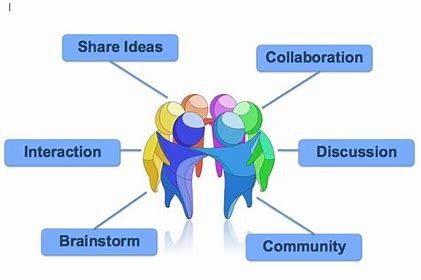What is Cooperative Learning and why?

Teachers have always been looking for different methods to enhance the material being taught. This is because there is no best way to teach, and instead, being open minded to different learning approaches can be highly beneficial. One learning approach called Cooperative Learning, is a method that is used on students to integrate group work. Additional to group work, it allows students to see and improve on the elements when working in a group, such as group responsibilities. The aim of this approach is to enhance student learning through the use of groups to help each other out (Brame, C.J. & Biel, R., 2015).. There can be formal and informal approaches to cooperative learning. Briefly speaking, formal cooperative learning typically involves the teacher/instructor to form a structure for the students to follow within the group. Informal cooperative learning is where the instructor has little to no intervention and the group itself has to do most of the planning/peer work (Brame, C.J. & Biel, R., 2015). A few examples of cooperative learning includes:
- Think pair share
- Students are to first think about a given question, then pair up with peers, and lastly share their thoughts regarding the question.
- Peer instruction
- Students are to first think and answer a given question, pair up and discuss their answers, and ultimately keep or change their answers after discussing.
- Jigsaw
- All students in a given group will excel in their group topic, the groups are then scrambled where each group will contain exactly 1 student that excels in their previous group topic. This suggests that after the group change, there will be 4 unique students that excel in different topics.
(Brame, C.J. & Biel, R., 2015).
In terms the alignment of this approach and my chosen topic (online learning course), there is almost none. This is because the chosen topic is typically heavily reliant on individual work to complete, whereas the cooperative learning approach relies on peer to peer work. In some cases, it is possible to integrate cooperative learning to the topic where discussions can be made to solve some of the interactive and assessment material. For example, if two students are participating in an online course, and one of the students get’s stuck on a difficult question, they can turn to the other student taking the course and discuss on that matter. Of course, if discussion is a matter of just cheating and no intention to learn, then there is no benefit of taking the course. But ultimately, material in the online learning course is intended to enhance the knowledge for individual students.
References
- Brame, C.J. & Biel, R. (2015). Setting up and facilitating group work:
Using cooperative learning groups effectively. Vanderbilt University Center for Teaching. Retrieved [todaysdate] from http://cft.vanderbilt.edu/guides-sub-pages/setting-up-and-facilitating-group-work-using-cooperative-learning-groups-effectively/.
- Aida Tate, E. D. (2019, January 4). Cooperative learning – planning and implementation. Thrive. https://thriveglobal.com/stories/cooperative-learning-planning-and-implementation/
Recent Comments